Best Languedoc-Roussillon Red Wines
The Gérard Bertrand Château L'Hospitalet Grand Vin La Clape presents itself to the wine lover wonderfully dry. This red wine is never coarse or meager, as one might expect from a wine icon wine segment. On the tongue, this punchy red wine is characterized by an incredibly dense texture.
The finale of this youthful red wine from the wine-growing region of the Languedoc, more precisely from La Clape, finally impresses with considerable reverberation. The finish is also accompanied by mineral hints of the soils dominated by limestone and marl.
AWARDS
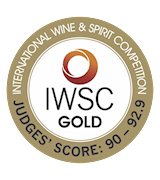
IWSC- International wine & spirit competition - Gold
2020, 2019
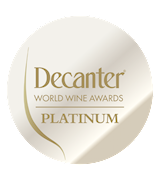
Decanter World Wine Awards - Platinum
2022

International Wine Challenge - IWC Champion Red Wine 2019
2019
AWARDS
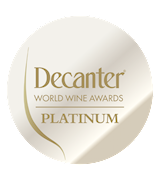
Decanter World Wine Awards - Platinum
2020, 2018
AWARDS

Decanter World Wine Awards - Platinum
2022
AWARDS

Decanter World Wine Awards - Platinum
2017
Château de Crès Ricards Stécia 2019 is a bold red wine produced by Les Domaines Paul Mas. Made primarily from Syrah and Grenache grapes, it has a deep, intense color and a complex bouquet featuring notes of blackberries, plums, and hints of spices like black pepper and licorice.
On the palate, it’s full-bodied with soft tannins and a balanced structure, leading to a long, smooth finish. This wine pairs well with rich dishes such as grilled meats, stews, or aged cheeses.
AWARDS
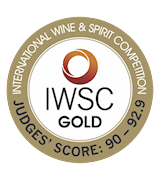
IWSC- International wine & spirit competition - Gold
2021
AWARDS

Decanter World Wine Awards - Platinum
2018
Beautiful topaz color with amber highlights. Notes of prunes, nuts and dried fruits, thyme and rosemary. Complex wine with a beautiful length in the mouth. Ideally accompanies a chocolate dessert or mignardises. Surprising with cheeses such as Roquefort, Tomme de brebis.
As a pleasure as a digestif or with a cigar.
AWARDS
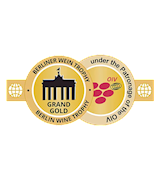
Berlin Wine Trophy - Grand Gold
2020, 2019
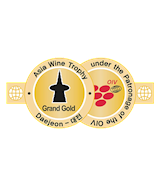
Asia Wine Trophy - Grand Gold
2018
AWARDS

Frankfurt International Trophy - Grand Gold
2023, 2019, 2018
Best Languedoc-Roussillon Red Wine Types
Côtes du Roussillon Villages is a French appellation located in the Roussillon wine region that includes the villages Caramany, Latour de France, Lesquerde, and Tautave, all surrounding the village of Maury. The appellation exclusively produces red blends that are based on Grenache, Carignan Noir, Lladoner Pelut, Syrah and Mourvèdre.
Due to different soils and blends, the wines can slightly differ in character, but they are generally powerful and tannic with fruity notes that are complemented by herbal, spicy, mineral, and earthy nuances. The wines perfectly pair with game, white or red meat, and cheese.
Although it also produces white and rosé wines, Faugères is a French appellation located in Languedoc-Roussillon that is mostly known for their ripe and fruity red wines based on Syrah, Grenache, and Mourvedre, with the occasional addition of Cinsaut and Lladoner Pelut.
These ruby red wines typically display primary aromas of ripe red and black fruits that are usually complemented by nuances of coffee, underbrush, or pepper. With age, the wines may develop more robust expressions of leather or tobacco. Because of their well-structured tannins, red Faugères wines are an excellent match to red meat, game, or stews.
Fitou is a French appellation located in Languedoc (Aude) that produces full-bodied red wines primarily based on Carignan and Grenache, with small percentages of Mourvedre and Syrah. These wines are characterized by typical aromas of ripe red and black fruits, hints of violets, spices, or herbs, as well as nuances of vanilla and oak that develop with age.
Although they can be enjoyed young, Fitou wines greatly benefit from aging. In their youth, these wines can be an excellent accompaniment to white meat or charcuterie, while the well-balanced tannins of aged varieties perfectly complement red meat, game, or stews.
Cinsault, also known as Cinsaut, is a red wine grape variety primarily grown in the southern regions of France, particularly in the Languedoc-Roussillon and Provence areas. It is also widely cultivated in other wine regions around the world, including South Africa, where it has a significant presence, as well as in Algeria, Morocco, and Lebanon.
Cinsault is known for producing wines that are light to medium-bodied with a soft, fruity character. The grape is often used as a blending partner due to its ability to add freshness and aromatic complexity to wines. In blends, it is commonly paired with varieties such as Grenache, Syrah, and Mourvèdre, contributing to the structure and aromatic profile of wines like those from the Southern Rhône, including Châteauneuf-du-Pape and various Côtes du Rhône wines.
THE BEST Cinsault Wine Varieties
Caladoc is a red wine grape variety that is a cross between Grenache and Malbec. It was created in 1958 by French ampelographer Paul Truel as part of an effort to develop new grape varieties that could thrive in the southern French climate while offering desirable winemaking characteristics.
Caladoc is primarily grown in the Languedoc-Roussillon region of France, but it can also be found in other parts of southern France and in some vineyards around the Mediterranean. Caladoc grapes produce wines that are deeply colored with medium to full body.
Marselan is a relatively recent red wine grape variety that is a cross between Cabernet Sauvignon and Grenache. It was created in 1961 by French viticulturist Paul Truel near the town of Marseillan in southern France, from which it derives its name.
Initially, Marselan was not widely planted, but its popularity has grown over the years due to its potential to produce high-quality wines with unique characteristics. Marselan grapes produce wines that combine the best attributes of its parent varieties.
TasteAtlas food rankings are based on the ratings of the TasteAtlas audience, with a series of mechanisms that recognize real users and that ignore bot, nationalist or local patriotic ratings, and give additional value to the ratings of users that the system recognizes as knowledgeable. TasteAtlas Rankings should not be seen as the final global conclusion about food. Their purpose is to promote excellent local foods, instill pride in traditional dishes, and arouse curiosity about dishes you haven’t tried.








